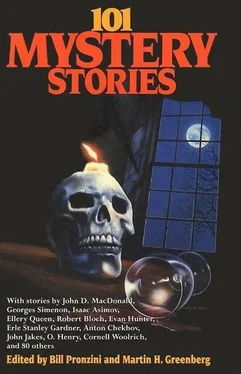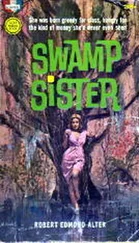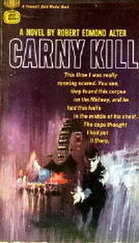Robert Alter - 101 Mystery Stories
Здесь есть возможность читать онлайн «Robert Alter - 101 Mystery Stories» весь текст электронной книги совершенно бесплатно (целиком полную версию без сокращений). В некоторых случаях можно слушать аудио, скачать через торрент в формате fb2 и присутствует краткое содержание. Город: New York, Год выпуска: 1986, ISBN: 1986, Издательство: Avenel Books, Жанр: Детектив, на английском языке. Описание произведения, (предисловие) а так же отзывы посетителей доступны на портале библиотеки ЛибКат.
- Название:101 Mystery Stories
- Автор:
- Издательство:Avenel Books
- Жанр:
- Год:1986
- Город:New York
- ISBN:978-0-517-60361-1
- Рейтинг книги:3 / 5. Голосов: 1
-
Избранное:Добавить в избранное
- Отзывы:
-
Ваша оценка:
- 60
- 1
- 2
- 3
- 4
- 5
101 Mystery Stories: краткое содержание, описание и аннотация
Предлагаем к чтению аннотацию, описание, краткое содержание или предисловие (зависит от того, что написал сам автор книги «101 Mystery Stories»). Если вы не нашли необходимую информацию о книге — напишите в комментариях, мы постараемся отыскать её.
101 Mystery Stories — читать онлайн бесплатно полную книгу (весь текст) целиком
Ниже представлен текст книги, разбитый по страницам. Система сохранения места последней прочитанной страницы, позволяет с удобством читать онлайн бесплатно книгу «101 Mystery Stories», без необходимости каждый раз заново искать на чём Вы остановились. Поставьте закладку, и сможете в любой момент перейти на страницу, на которой закончили чтение.
Интервал:
Закладка:
The man from the West stopped suddenly and released his arm.
“You’re not Jimmy Wells,” he snapped. “Twenty years is a long time but not long enough to change a man’s nose from a Roman to a pug.”
“It sometimes changes a good man into a bad one,” said the tall man. “You’ve been under arrest for ten minutes, ‘Silky’ Bob. Chicago thinks you may have dropped over our way and wired us she wants to have a chat with you. Going quietly, are you? That’s sensible. Now, before we go to the station here’s a note I was asked to hand you. You may read it here at the window. It’s from Patrolman Wells.”
The man from the West unfolded the little piece of paper handed him. His hand was steady when he began to read, but it trembled a little by the time he had finished. The note was rather short.
Bob: I was at the appointed place on time. When you struck the match to light your cigar I saw it was the face of the man wanted in Chicago. Somehow I couldn’t do it myself, so I went around and got a plainclothesman to do the job.
Jimmy.15
The Export Trade
Leslie Charteris
It is a notable fact, which might be made the subject of a profound philosophical discourse by anyone with time to spare for these recreations, that the characteristics which go to make a successful buccaneer are almost the same as those required by the detective whose job it is to catch him.
That he must be a man of infinite wit goes without saying; but there are other and more uncommon essentials. He must have an unlimited memory not only for faces and names, but also for every odd and out-of-the-way fact that comes to his knowledge. Out of a molehill of coincidence he must be able to build up a mountain of inductive speculation that would make Sherlock Holmes feel dizzy. He must be a man of infinite human sympathy, with an unstinted gift for forming weird and wonderful friendships. He must, in fact, be equally like the talented historian whose job it is to chronicle his exploits — with the outstanding difference that instead of being free to ponder the problems which arise in the course of his vocation for sixty hours, his decisions will probably have to be formed in sixty seconds.
Simon Templar fulfilled at least one of these qualifications to the n th degree. He had queer friends dotted about in every outlandish corner of the globe, and if many of them lived in unromantic-sounding parts of London, it was not his fault. Strangely enough, there were not many of them who knew that the debonair young man with the lean tanned face and gay blue eyes who drifted in and out of their lives at irregular intervals was the notorious lawbreaker known to everyone as the Saint. Certainly old Charlie Milton did not know.
The Saint, being in the region of the Tottenham Court Road one afternoon with half an hour to dispose of, dropped into Charlie’s attic workroom and listened to a new angle on the changing times.
“There’s not much doing in my line these days,” said Charlie, wiping his steel-rimmed spectacles. “When nobody’s going in for real expensive jewelry, because the costume stuff is so good, it stands to reason they don’t need any dummies. Look at this thing — the first big bit of work I’ve had for weeks.”
He produced a glittering rope of diamonds, set in a cunning chain of antique silver and ending in a wonderfully elaborate heart-shaped pendant. The sight of it should have made honest buccaneer’s mouth water, but it so happened that Simon Templar knew better. For that was the secret of Charlie Milton’s employment.
Up there, in his dingy little shop, he labored with marvelously delicate craftsmanship over the imitations which had made his name known to every jeweler in London. Sometimes there were a hundred pounds’ worth of precious stones littered over his bench, and he worked under the watchful eye of a detective detailed to guard them. Whenever a piece of jewelry was considered too valuable to be displayed by its owner on ordinary occasions, it was sent to Charlie Milton for him to make one of his amazingly exact facsimiles; and there was many a wealthy dowager who brazenly paraded Charlie’s handiwork at minor social functions, while the priceless originals were safely stored in a safe deposit.
“The Kellman necklace,” Charlie explained, tossing it carelessly back into a drawer. “Lord Palfrey ordered it from me a month ago, and I was just finishing it when he went bankrupt. I had twenty-five pounds advance when I took it on, and I expect that’s all I shall see for my trouble. The necklace is being sold with the rest of his things, and how do I know whether the people who buy it will want my copy?”
It was not an unusual kind of conversation to find its place in the Saint’s varied experience, and he never foresaw the path it was to play in his career. Some days later he happened to notice a newspaper paragraph referring to the sale of Lord Palfrey’s house and effects; but he thought nothing more of the matter, for men like Lord Palfrey were not Simon Templar’s game.
In the days when some fresh episode of Saintly audacity was one of the most dependable weekly stand-bys of the daily press, the victims of his lawlessness had always been men whose reputations would have emerged considerably dishevelled from such a searching inquiry as they were habitually at pains to avoid; and although the circumstances of Simon Templar’s life had altered a great deal since then, his elastic principles of morality performed their acrobatic contortions within much the same limits.
That those circumstances should have altered at all was not his choice; but there are boundaries which every buccaneer must eventually reach, and Simon Templar had reached them rather rapidly. The manner of his reaching them has been related elsewhere, and there were not a few people in England who remembered that story. For one week of blazing headlines the secret of the Saint’s real identity had been published up and down the country for all to read; and although there were many to whom the memory had grown dim, and who could still describe him only by the nickname which he had made famous, there were many others who had not forgotten. The change had its disadvantages, for one of the organizations which would never forget had its headquarters at Scotland Yard; but there were occasional compensations in the strange commissions which sometimes came the Saint’s way.
One of these arrived on a day in June, brought by a somberly-dressed man who called at the flat on Piccadilly where Simon Templar had taken up his temporary abode — the Saint was continually changing his address, and this palatial apartment, with tall windows overlooking the Green Park, was his latest fancy. The visitor was an elderly white-haired gentleman with the understanding eyes and air of tremendous discretion which one associates in imagination with the classical type of family solicitor that he immediately confessed himself to be.
“To put it as briefly as possible, Mr. Templar,” he said, “I am authorized to ask if you would undertake to deliver a sealed package to an address in Paris which will be given you. All your expenses will be paid, or course; and you will be offered a fee of one hundred pounds.”
Simon lighted a cigarette and blew a cloud of smoke at the ceiling.
“It sounds easy enough,” he remarked. “Wouldn’t it be cheaper to send it by mail?”
“That package, Mr. Templar — the contents of which I am not allowed to disclose — is insured for five thousand pounds,” said the solicitor impressively. “But I fear that four times that sum would not compensate for the loss of an article which is the only thing of its kind in the world. The ordinary detective agencies have already been considered, but our client feels that they are scarcely competent to deal with such an important task. We have been warned that an attempt may be made to steal the package, and it is our client’s wish that we should endeavor to secure the services of your own — ah — singular experience.”
Читать дальшеИнтервал:
Закладка:
Похожие книги на «101 Mystery Stories»
Представляем Вашему вниманию похожие книги на «101 Mystery Stories» списком для выбора. Мы отобрали схожую по названию и смыслу литературу в надежде предоставить читателям больше вариантов отыскать новые, интересные, ещё непрочитанные произведения.
Обсуждение, отзывы о книге «101 Mystery Stories» и просто собственные мнения читателей. Оставьте ваши комментарии, напишите, что Вы думаете о произведении, его смысле или главных героях. Укажите что конкретно понравилось, а что нет, и почему Вы так считаете.












